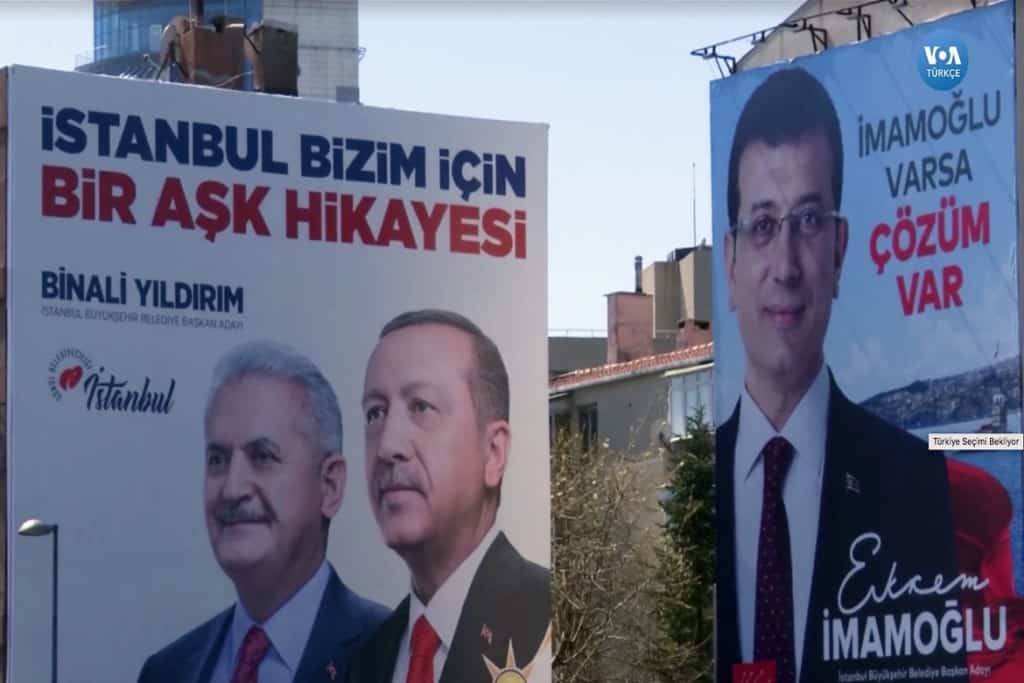By Denis Korkodinov
On June 24, 2019, Turkey faced a new political reality as a result of repeated municipal elections and the defeat of the pro-government candidate.
Ekrem Imamoglu’s final victory in the election campaign against Binali Yıldırır is likely to trigger a series of internal political transformations in Turkey. As a result of which Recep Erdogan will probably decide on early presidential elections, fearing the influence of opposition candidates.
It is worth noting that the Turkish leader acknowledged Imamoglu’s victory, but did not do it during a televised speech, as is usually the case, but confined to written congratulations. The symbolism of this action, apparently, is that Recep Erdogan and his party are not yet ready to publicly demonstrate their defeat, creating for themselves a field for political maneuver.
One of such political maneuvers could be a change in the order of electoral nomination in municipalities, the intensification of the struggle against the “hidden agents” of Fettulah Gulen, and, which is quite expected, the early election of the head of state.
Ekrem Imamoglu’s victory turned out to be almost absolute: he managed to get about 800 thousand votes in 12 out of 25 districts that traditionally voted for candidates “from the president.” The main struggle was for the votes of voters living in the Fatih district, which for almost 30 years was the outpost of the Justice and Development Party. However, the opposition “People’s Republican Party” still managed to win the electorate’s position through agitation and bribes.
The victory of the opposition in the municipal elections in Istanbul was due to a whole series of strategic miscalculations that were made by the “party of power”. In particular, Turkish President Recep Erdogan too late declared invalid the results of the vote held on March 31, 2019.
This allowed Ekrem Imamoglu to serve as mayor of Istanbul for 18 days, which, among ordinary voters, created the impression that his candidacy was consistent with the head of state. However, the appointment of repeat elections has caused certain cognitive dissonance in the electoral environment. Voters, as a rule, became perplexed: if the victory of Ekrem Imamoglu was falsified, then why was he allowed to govern the city.
Moreover, if the country’s president acknowledged that the election was the result of political fraud, and the opposition candidate still received control levers, then ordinary voters could have questions to Recep Erdogan himself: either he reduces personal accounts with Ekrem Imamoglu, or the entire electoral system of the country is corrupt so much so that she was able to mislead the head of state. In any case, such logical constructions that arose in the electoral environment, regardless of their content, discredited the “party of power” and Recep Erdogan personally.
Therefore, the outcome of the repeated elections was predetermined: it was the candidate whom the voters considered undeservedly insulted and deprived of power that won.
On the other hand, the victory of Ekrem Imamoglu suggests that Turkey is an exclusively democratic country, where the voice of citizens is the main value of the state. After all, the results of the re-voting could be falsified, as a result of which Binali Yıldırım could get the position of the mayor of Istanbul. However, this did not happen. In Turkey, this could not have happened in principle, since Turks respect the choice of their citizens very much, even if it is mistaken by definition. This is real democracy.
In the present conditions, in order to protect the interests of the ruling party, Recep Erdogan is likely to be able to carry out electoral reform in order to create additional municipal filters for opposition candidates. Most likely, this reform will involve a number of risks that are associated with the need to harmonize legislative initiatives with the parliament, whose deputies, especially representatives of Kurdish factions, will be against.
In addition, in order to weaken the influence of the opposition in Turkey, a second wave of struggle against “FETO” will probably be organized, among whose followers, most likely, will be Ekrem Imamoglu, who won the election of the mayor of Istanbul. Such a reversal of domestic political competition will allow to initiate a criminal case against the opposition leader and already within the framework of the criminal prosecution to seek his removal from the post of mayor.
But here, too, there is a big risk, since the power of Ekrem Imamoglu has already been legitimized by universal suffrage. Moreover, he heads Istanbul, which, according to Recep Erdogan, is the “gate of Turkey.” This means that if Ekrem Imamoglu is recognized as a Gulenist, such a passage would cause reputational damage to the entire state system of Turkey.
Probably, Ekrem Imamoglu will apply for the post of head of state. At least now his political rating allows him to compete with Recep Erdogan. In this regard, he may be a danger to the current government, as it represents the opposition course. In order to prevent such a scenario, Recep Erdogan is likely to go to the organization of early elections. This will allow him to mobilize his own electorate to fight and, if necessary, discredit his opponents.
If such options are implemented, Ankara will indeed face a new political reality, thanks to which we will probably not recognize Turkey. At least, Turkey will not be the same as before.
(The opinions expressed in this article are solely those of the author and do not necessarily reflect the views of World Geostrategic Insights).







